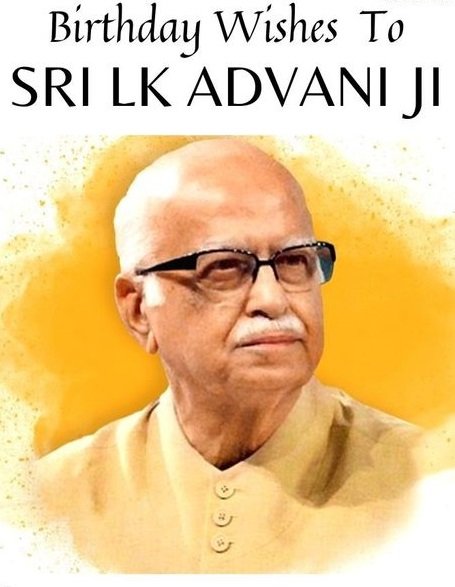
Vaidehi Bhargava
Lal Krishna Advani, born on November 8, 1927, is one of India’s most prominent political figures, particularly known for his role in shaping the Bharatiya Janata Party (BJP) and the political ideology that has come to define the party. His journey from a young volunteer to a national leader and a veteran politician has been marked by significant struggles, ideological growth, and notable contributions to Indian politics.
Advani’s career began with the Rashtriya Swayamsevak Sangh (RSS), an organization dedicated to promoting Hindu nationalism, where he became an active worker in his early teens. His journey within the RSS laid a strong foundation for his lifelong dedication to the ideology of Hindutva, which later became central to his political identity. In the 1950s, he was introduced to the political wing of the RSS, the Bharatiya Jana Sangh (BJS), under the mentorship of Syama Prasad Mukherjee. Advani quickly gained a reputation for his organizational skills and discipline, which eventually led to his rise within the ranks.
However, it was not an easy climb to prominence. Following the emergency declared by Prime Minister Indira Gandhi in 1975, Advani, along with several other leaders of the opposition, was arrested. His opposition to the emergency solidified his commitment to a democratic framework and brought him significant recognition as a staunch defender of democracy. When the Janata Party, an amalgamation of various opposition groups, came to power in 1977, Advani became the Minister of Information and Broadcasting. His tenure saw the loosening of restrictions on the press, a stance he strongly advocated as a response to the censorship imposed during the Emergency.
In 1980, following the dissolution of the Janata Party, Advani co-founded the Bharatiya Janata Party (BJP) alongside Atal Bihari Vajpayee. Although the party initially struggled to gain widespread support, Advani’s leadership and strategic approach started to bring Hindutva politics to the forefront. His “Rath Yatra” in 1990, a nationwide tour to rally support for the construction of a Ram Temple in Ayodhya, marked a turning point. The tour not only energized the BJP’s base but also brought Advani national fame as a charismatic, if controversial, leader. While the movement around Ayodhya led to communal tensions, it significantly raised the BJP’s profile, eventually contributing to the party’s rise as a dominant political force in the 1990s.
Advani served as the Home Minister and later as Deputy Prime Minister in the Vajpayee-led government from 1998 to 2004, where he was influential in shaping policy on security, defense, and internal governance. Although he faced challenges and criticisms, particularly around the handling of communal issues, his contributions to policy and governance were widely acknowledged. Over the years, Advani’s image transformed from a hardline Hindutva advocate to a seasoned statesman who played a crucial role in Indian politics.
Today, L.K. Advani remains a respected figure, often seen as the architect of the BJP’s ideological framework and growth, with a legacy that reflects both his accomplishments and the controversies of his time. His journey exemplifies a commitment to his beliefs and a steady rise through perseverance and strategic political acumen.

